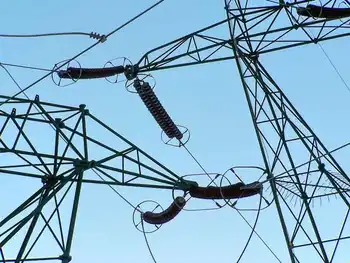OPG workers receive pay bump
By Globe and Mail
Protective Relay Training - Basic
Our customized live online or in‑person group training can be delivered to your staff at your location.

- Live Online
- 12 hours Instructor-led
- Group Training Available
ThatÂ’s because the 3,400 unionized engineers, scientists and other white-collar workers who were awarded increases of 6 per cent over two years are employees of the Ontario governmentÂ’s own electrical-power-generating company.
But Ontario Power Generation will have to come up with the money just as the provinceÂ’s energy regulator has sharply reduced a rate increase sought by the utility, saying its head count and salaries are too high.
The Ontario Energy Board granted the utility a 1-per-cent hike in electricity rates recently. OPG initially sought a 9.6-per-cent increase before scaling that back to 6.5 per cent.
“This does obviously present some challenges to us,” OPG spokesman Ted Gruetzner said. “The OEB has made it very clear what they expect us to do, so we’ll have to see how that impacts our operations.”
Arbitrator Kevin Burkett said the province’s Finance and Energy ministers wrote to OPG just before the arbitration process began in January, to remind it that “as an agency of the province [it] is subject to these obligations and expectations.”
OPG management made it clear it was seeking a wage freeze and also cancelled performance bonuses, which typically added another 2.5 per cent a year to the wages of engineers and scientists.
But Mr. Burkett said in his decision he ignored the government’s “pronouncements” on wage restraints because they are of “no binding force or effect” without legislation. His ruling caps a string of other arbitrated agreements awarding wage increases to public-sector workers.
“We’re not bound by a government desire to freeze our wages,” said Brian Robinson, a spokesman for the Society of Energy Professionals, which represents the OPG workers. “The government’s initiative to do this was apparently to address the deficit and OPG’s [electricity] rates have nothing whatsoever to do with the deficit.”
The Energy BoardÂ’s decision, released last week, effectively means that OPG cannot pass on all of its wage increases to electricity consumers. In fact, the board reduced the utilityÂ’s allowance for compensation by $145-million.
The regulator criticized OPG for not doing enough to reduce its operating costs. The company did find $85-million in cost savings last year at the urging of Energy Minister Brad Duguid, the board said in its 200-page decision. But the board said it was surprised that OPG took no further action.
“While this reduction does represent a genuine step towards cost control,” the decision said, “it is an exaggeration to call it ‘savings.’”
The board determines what rates the utility can charge for electricity generated at its nuclear stations and its regulated hydroelectric plants. Overall, OPG accounts for about 60 per cent of the electricity generated in the province. It made a profit of $649-million on revenue of $5.4-billion in 2010.
The regulator noted in its decision that compensation makes up a significant portion of OPG’s operating costs. “The board is concerned with both the number of staff and the level of compensation paid in light of the overall performance of the nuclear [plants],” the decision said.
The regulator acknowledged that collective bargaining agreements may make it difficult for OPG to eliminate positions quickly, but it said it is not reasonable for electricity consumers to bear these additional costs in the face of strong evidence that the positions exceed reasonable requirements.
Adam White, president of the Association of Major Power Consumers in Ontario, said thereÂ’s a lot of sensitivity surrounding electricity prices.
“Generally speaking,” he said, “the Energy Board isn’t immune from the politics of electricity in Ontario. None of us are.”











